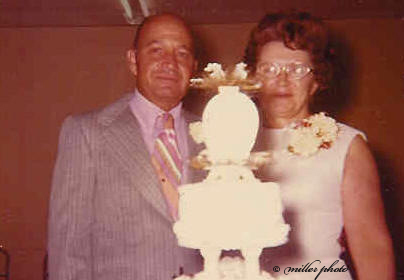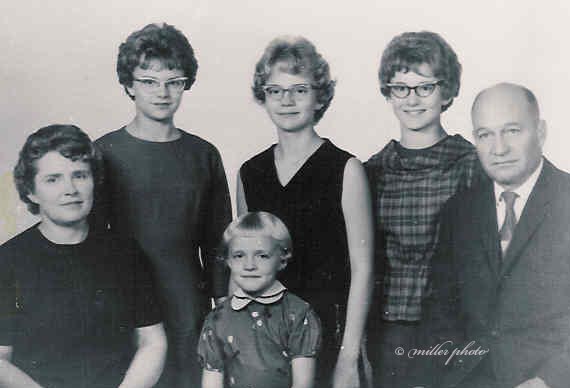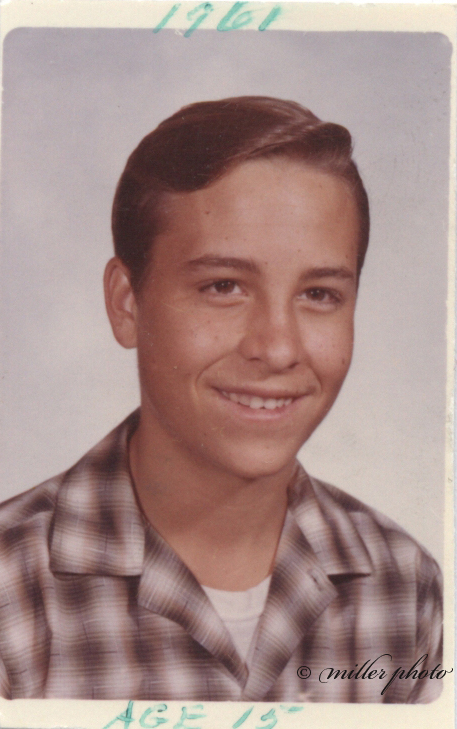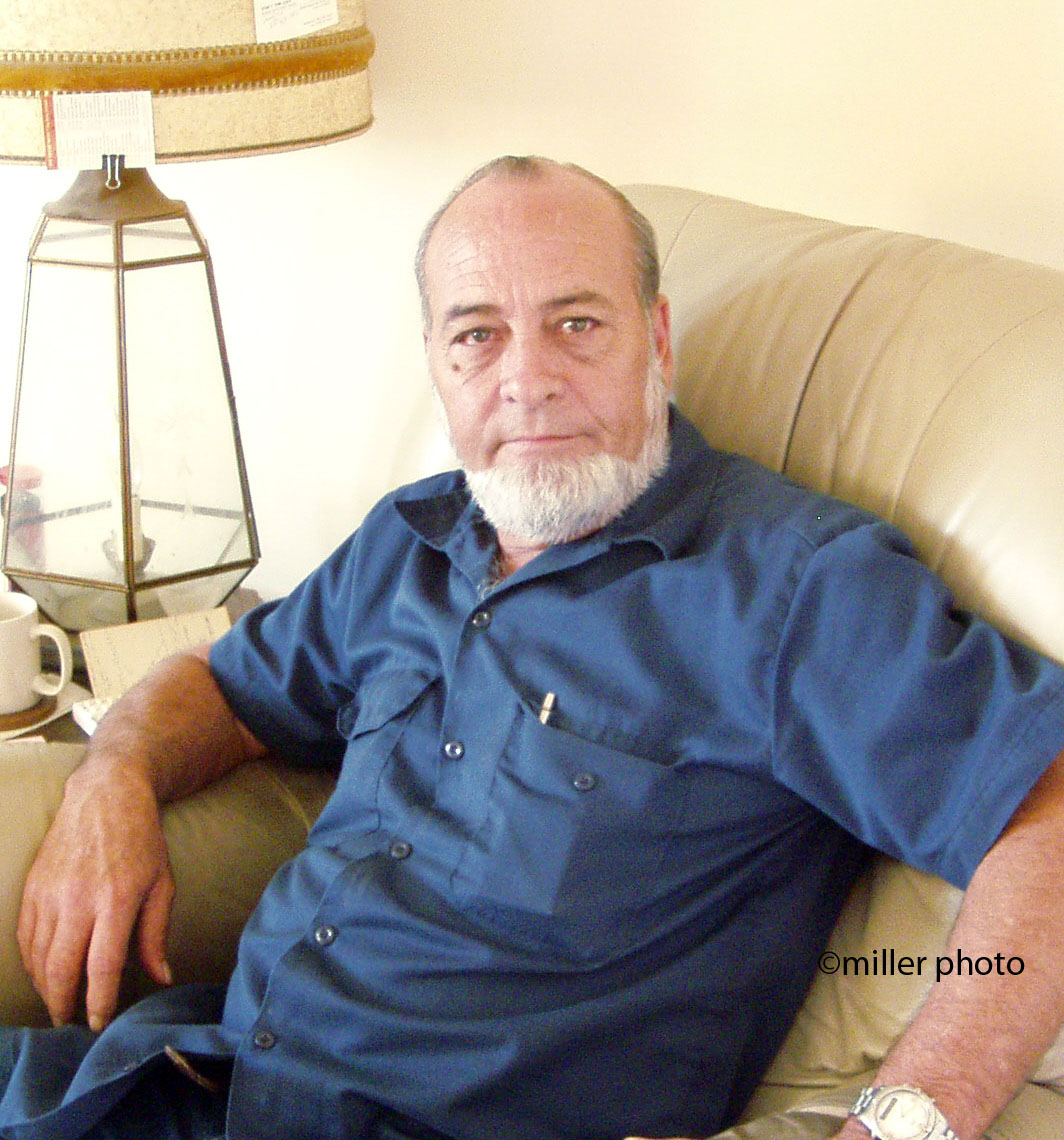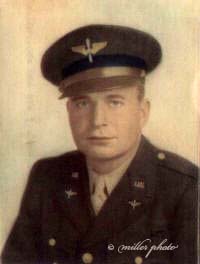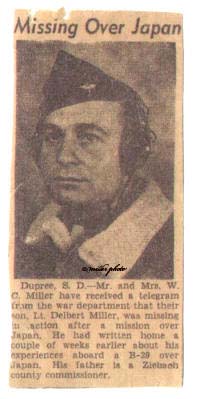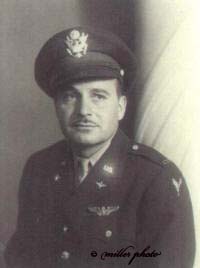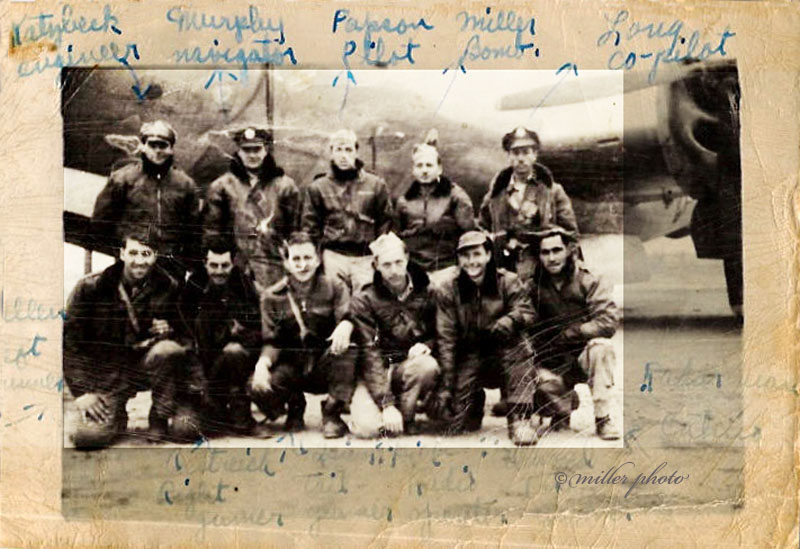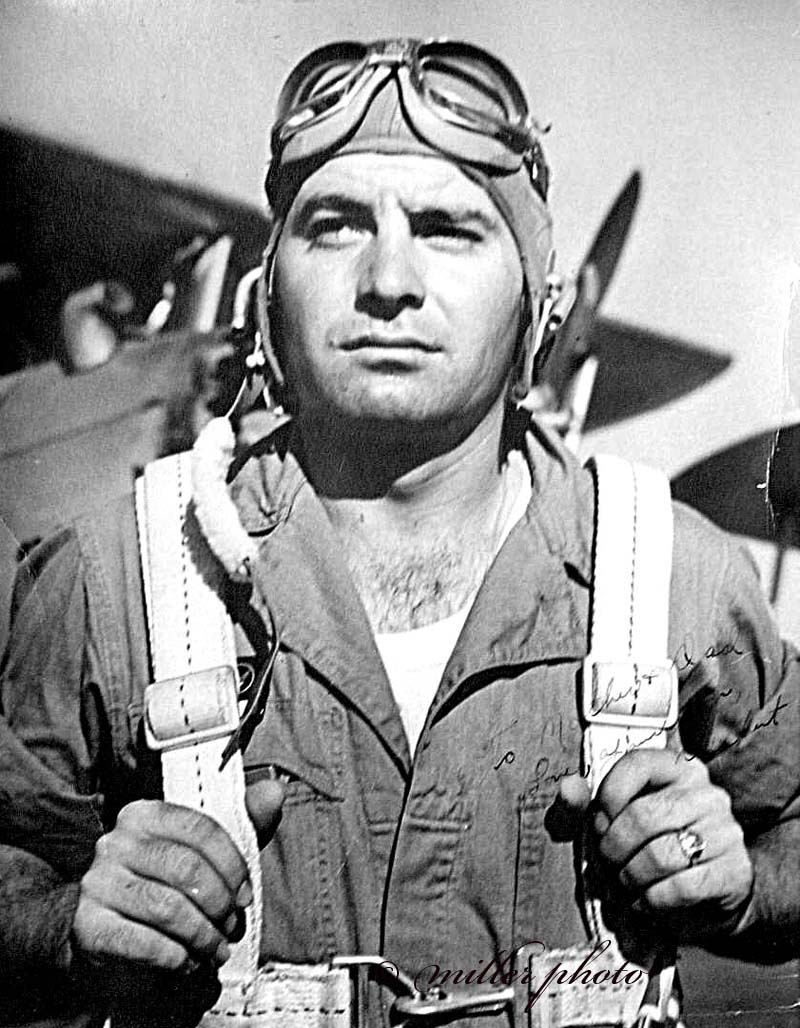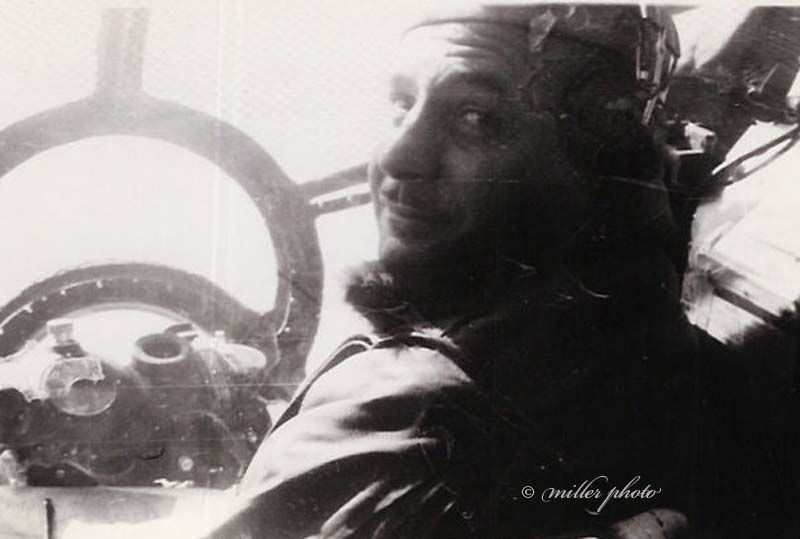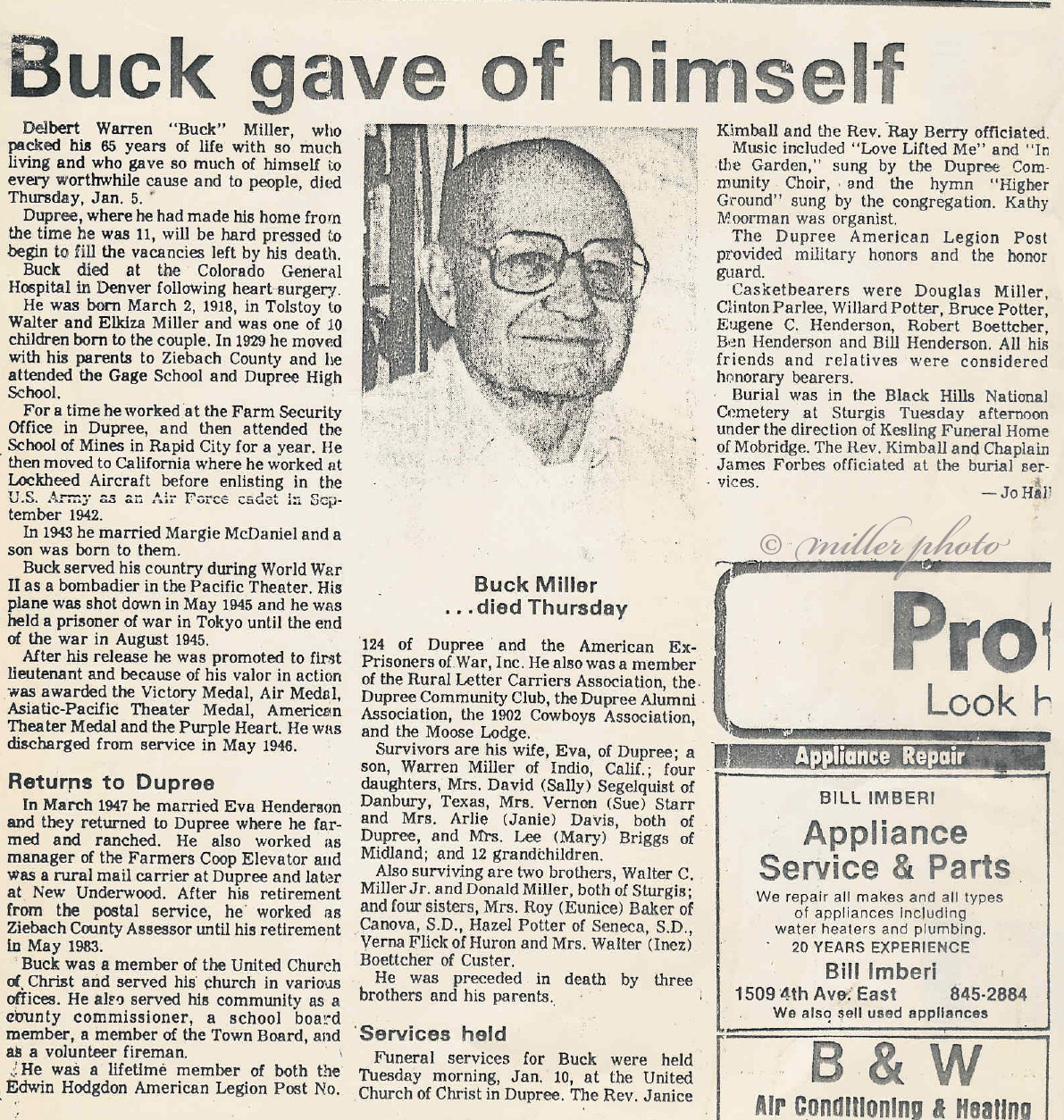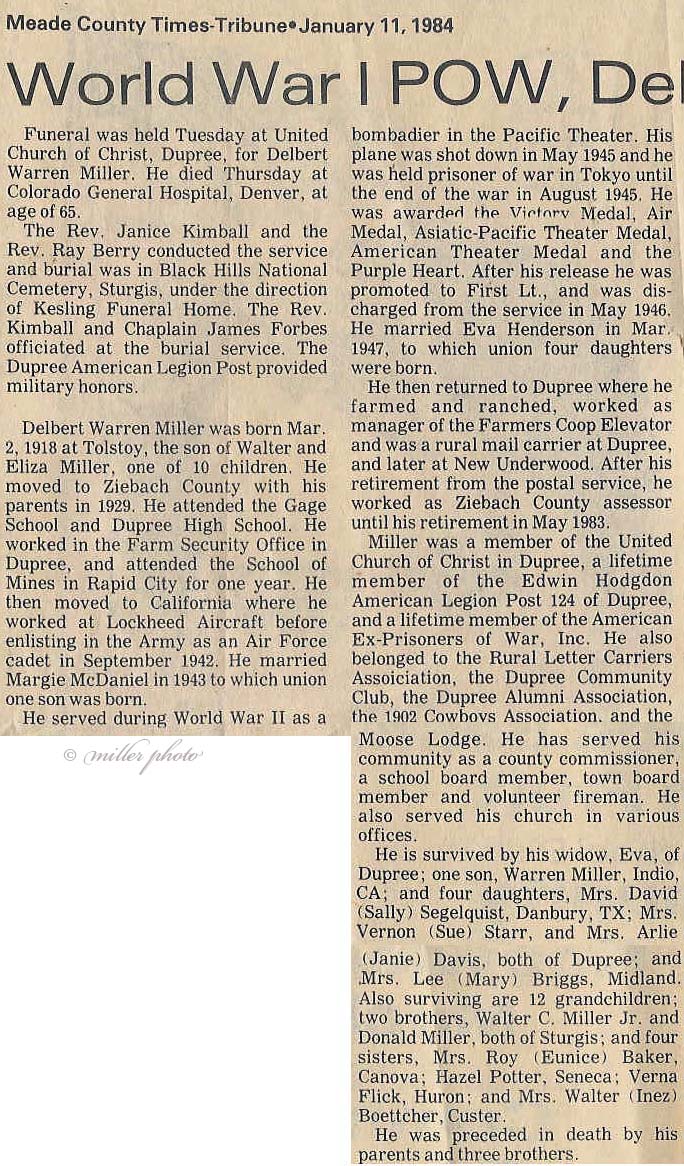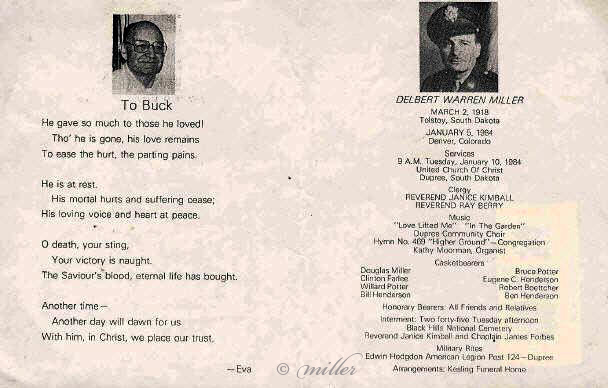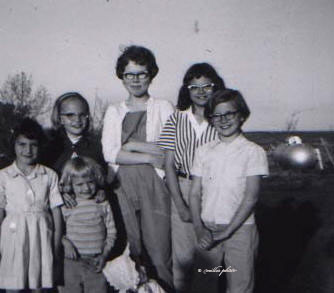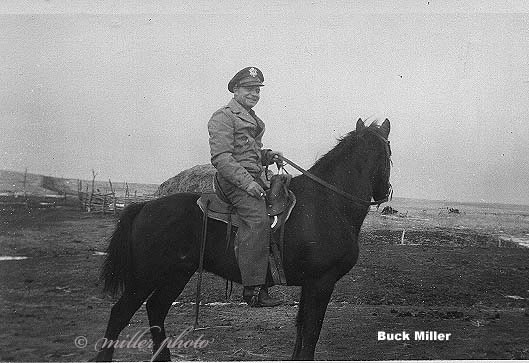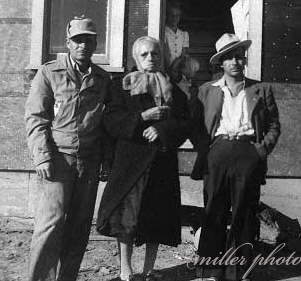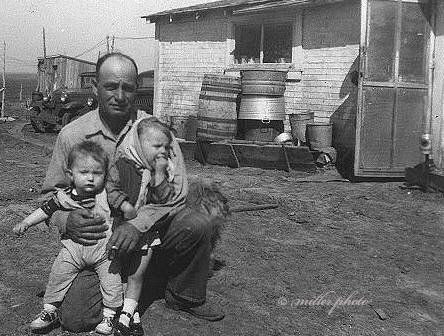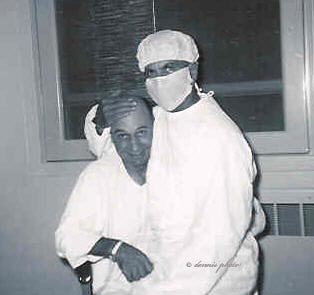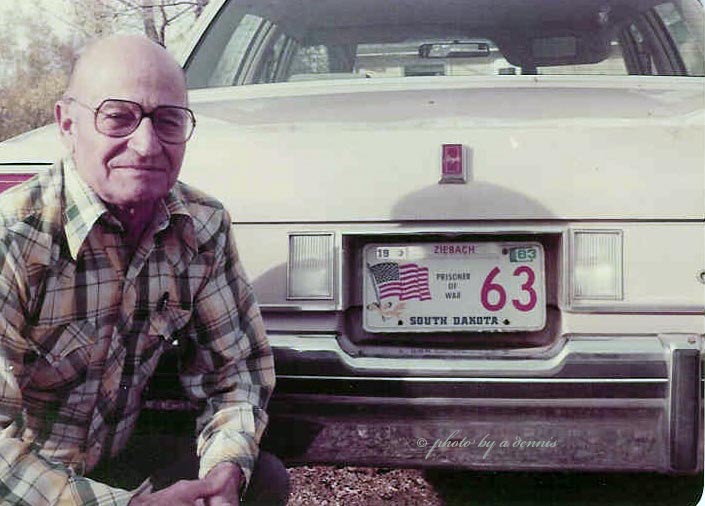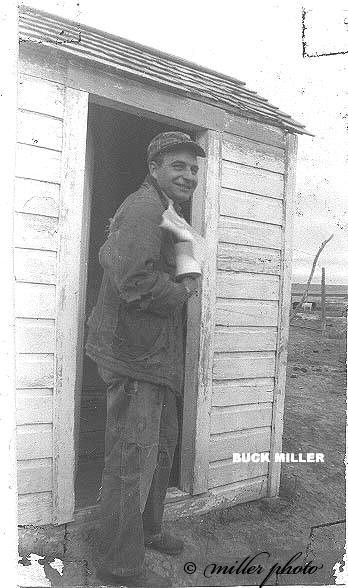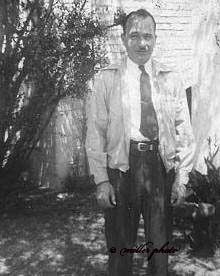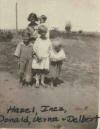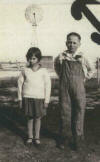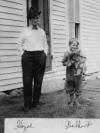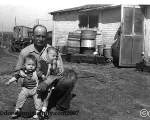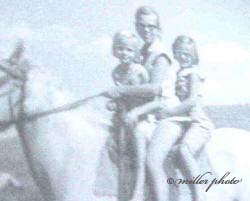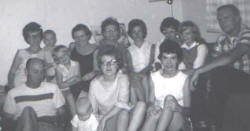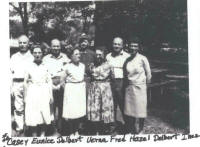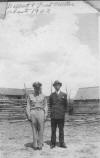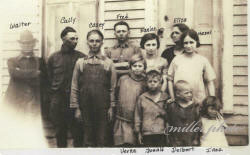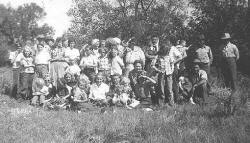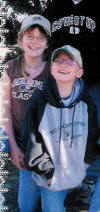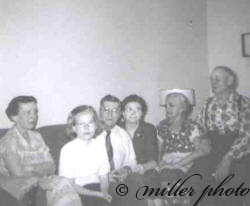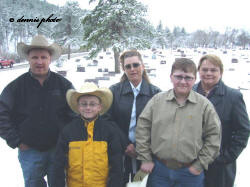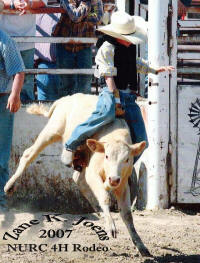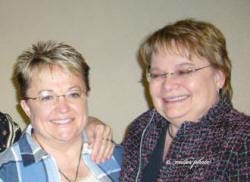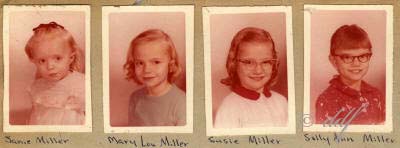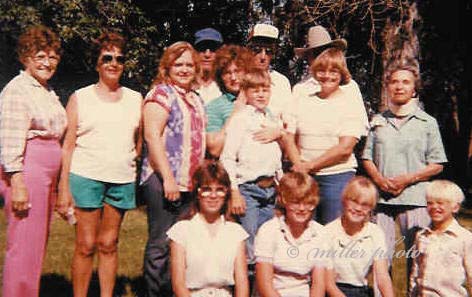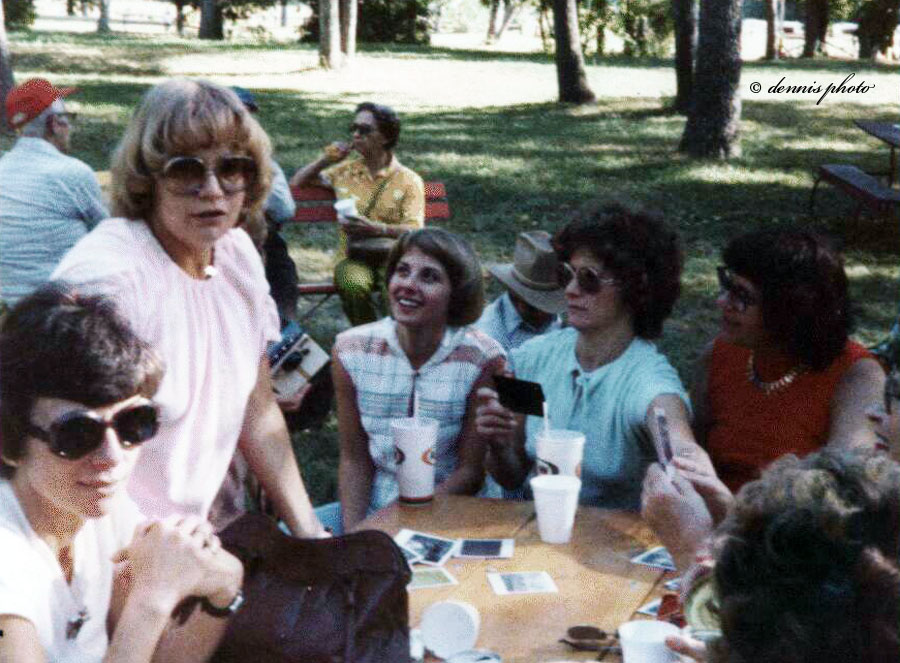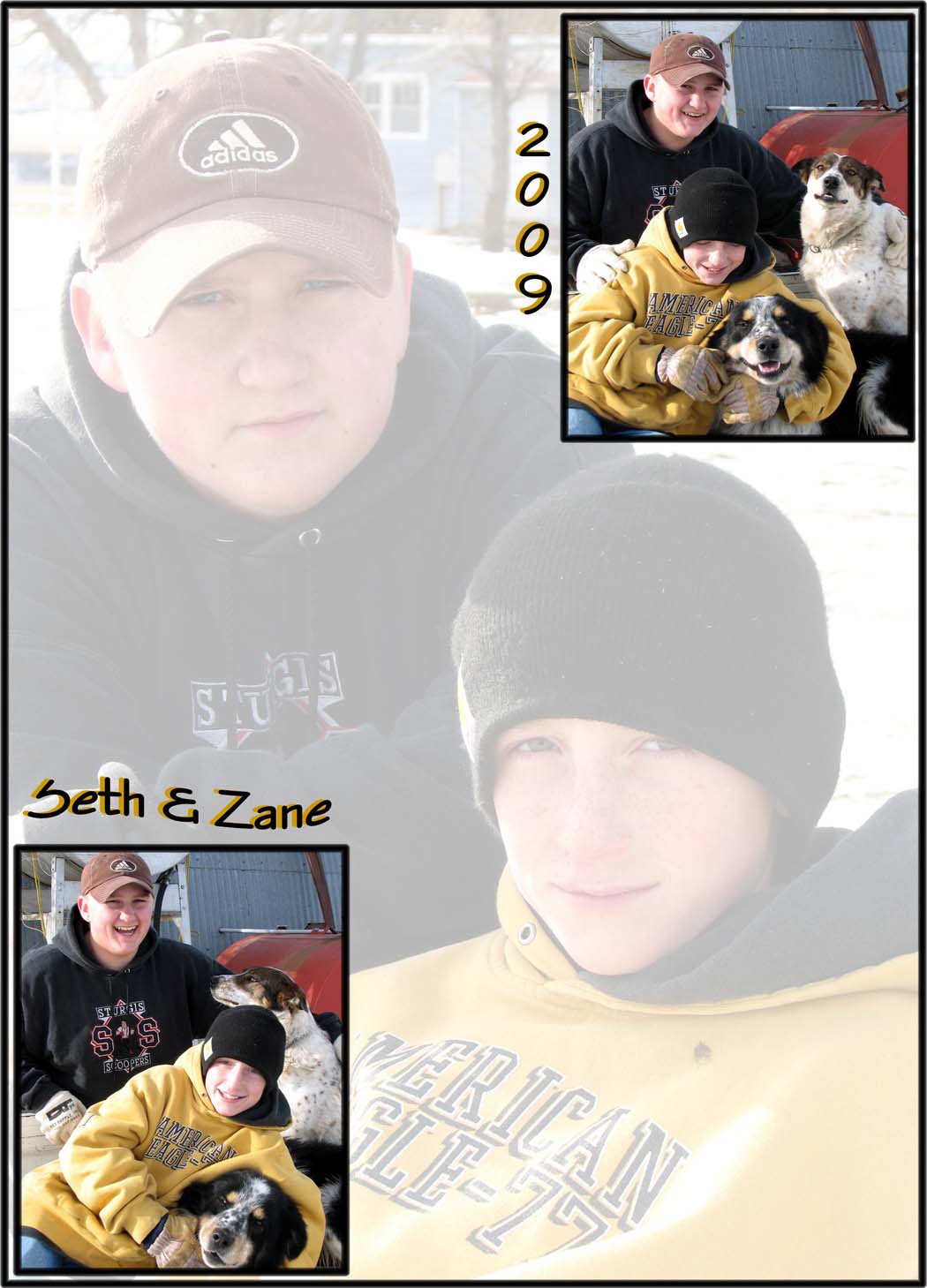1st Lt.
Delbert W. Miller, 40th Bomb Group, 44th Squadron, Army Air Force,
1943-1945Delbert W. “Buck” Miller,
son of Walter C. and Eliza Miller of Dupree, SD, entered the service
18 April 1943. Flight training, Gunnery and Advanced Bombardier
courses were attended in California, Arizona, and New Mexico. ‘Doc,
the bronco buster from South Dakota’ as he was known at Bombardiers
school, graduated in the Class 44-7 Bombardiers at Kirtland Army Air
Field, NM. He was assigned as bombardier in a B-29. He located,
identified and bombed assigned targets while on bombing missions;
inspected and tested bombsights and allied equipment prior to
clearing the ground, and on occasion, helped to navigate the
aircraft. Delbert was based in India, China, and Tinian in the
Marianas and flew missions over Manchuria, China, Burma, Thailand,
French Indo-China, Malay Peninsula Japan, and Honshu. He was wounded
in action 26 May 1945 when his plane was shot down over Tokyo by ack
ack. Dad said he parachuted out of a window that was way too small
to fit through let alone make it out with his flight suit and chute
on. He figured God had a plan for him by allowing him to live. When
he was captured, the Japanese civilians put a noose around his neck
ready to hang him and the Japanese soldiers saved him. He was a
prisoner of war at the Omori POW Camp, Japan, for 3 months and 3
days. He was rescued when the United States Navy entered Tokyo on 29
August 1945. The family at home had received word that he was MIA,
believed dead. Uncle Casey Miller wrote, “ . . . it was the worst day
in my life when I had to come home and tell our parents that their
youngest son had been shot down and was missing in action and presumed dead.” Just
before the war ended Aunt Inez Boettcher and Aunt Verna Flick
together at Verna’s house listened to a radio broadcast of a list of
POW’s. Upon hearing their brother Buck’s name they opened a can of
pineapple to celebrate!
1st Lt. Delbert W. Miller, 40th Bomb Group,
44th Squadron, received the following decorations and citations: the
Victory Medal, Air Medal, Purple Heart, Asiatic-Pacific Theater
Medal with 6 Bronze Stars, and the American Theater Medal. ( medals)
The
Cheyenne River Sioux Tribe held a Pow-Wow in his honor christening
him with the Indian name Flying Eagle.
Dad never spoke much about his captivity in
Japan. He said that as a POW involved in bombing missions, they were
thrown handfuls of rice and fish heads and that they would have
eaten roaches had they been strong enough and fast enough to catch
them. We remember Dad telling us that when he was liberated from the
POW camp, he was so thin he was able to circle his waist with his
two hands. Another story was of the ‘gauntlet’ the POW’s were forced
to walk where two rows of Japanese soldiers would line up and hold
iron bars at a certain height. The prisoners were blindfolded and
forced to quickly walk between them. Dad said he was so lucky to be
so short, 5’4”, as he missed being hit on the head by the bars. He
made light of his treatment while a prisoner at Omori Camp. A friend
and member of the Cheyenne River Sioux Tribe who stayed with him at
his parents home south of Dupree while he was convalescing remembers
the scars on his back from mistreatment while in the POW camp. He
always said he was never treated that badly, not nearly as bad as
some of the other prisoners. It was his nature to minimize the
atrocities he experienced so that no one would feel bad for him.
Years later, the chaplain at Ft. Meade who
spoke at Dad’s burial at the National Cemetery at Sturgis in 1984
related that when he was in the Chapel at Ft. Meade on a Sunday
morning a few weeks before Christmas 1983, he noticed Dad sitting
quietly with head bowed and tears running down his face. He asked,
“Delbert, is anything wrong? Are you okay?” Dad replied, “I look
around and there are so many here who have not been nearly as
fortunate as I. I have so much to be thankful for.”
Dad passed away about 3 weeks later as a result
of complications from heart surgery.
Submitted in his memory by his daughters: Sally
Sanderson, Sue Starr, Janie Davis
and Mary Briggs.
|
